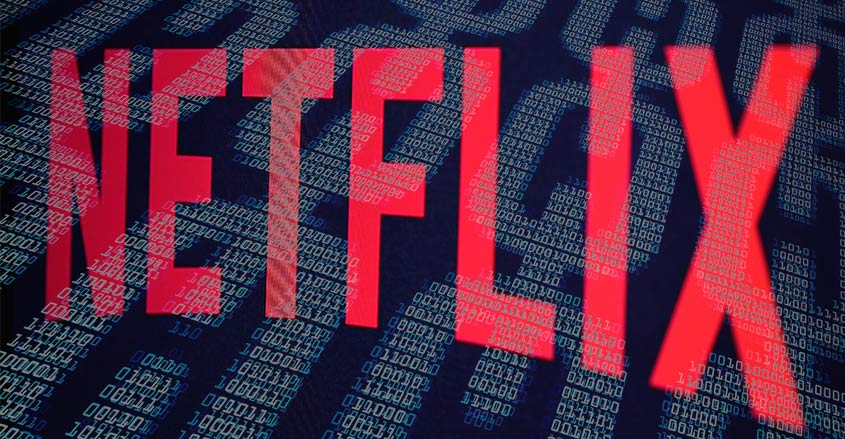The focus for most people is on the price of Bitcoin, yet the underlying blockchain technology is poised to disrupt industries on a broad scale. Case in point: Netflix.
In a blockchain, computers all around the world work together in a peer-to-peer network to complete a shared task, alleviating the need for a server or centralized authority. It’s distributed sharing with built-in payment control.
This is a fundamentally different model from, say, Netflix and any other streaming content service that depends on a centralized server for both aggregation and distribution.
It’s this centralized platform that puts contact creators at a disadvantage. The number of hoops they need to jump through in order to get their content streamed is onerous and costly.
Even if an artist has managed to strike a business deal with a cable network or streaming service, the pricing structure follows a rigid hierarchy that the content creator has little control over.
Spotify, the music service, famously pays its artists tiny fractions of a penny for each time a song is streamed, keeping the bulk of the money for itself.
If you introduce a truly decentralized platform with a proven payment system into this equation, that ends the need for a distribution middleman. Decentralized streaming platforms would enable content creators to distribute their content directly to their fans.
By removing a centralized authority, you also remove the ability to block or limit the access of specific content. Bye-bye net neutrality debate.
Blockchain technology, and the underlying currency systems they promise, should enable a robust and diverse amount of content for fans to consume and a convenient and lucrative way for content creators to sell and distribute their content.
PeerTracks, a blockchain music streaming startup, says it will pay an artist 90% of the value of their music, a substantial improvement over the 15% that most currently earned through traditional music streaming services.
Hundreds of decentralized video streaming services are in the works, systems that will use either existing or newly created blockchains as the foundation for their platform. Two of them, PeerLive and StreamTokens, are built on the Ethereum platform, for instance.
Blockchain revolution
If successful, blockchain could redefine our concept of channels. A channel today is a rigid database where only certain content can be accessed.
In a decentralized world, anyone could create a channel and any content creator could join the channel as long as their content matches the description.
The technology also puts advertising revenue in the hands of the creators. Advertisers would use coins or tokens to advertise on a decentralized platform.
They would then be able to specify the amount set to go directly to the creator without any middleman. This would increase sales revenue dramatically for creators.
Finally, it would lead to unlimited on-demand services. Presently many on-demand services are limited and are based on what cable or streaming network service you are subscribed to.
On a decentralized platform, these limitations will be removed and give customers the ability to access an unlimited amount of content.
Blockchain streaming is in its infancy. But experts are optimistic that the 2020s will be the decade of blockchain streaming.


